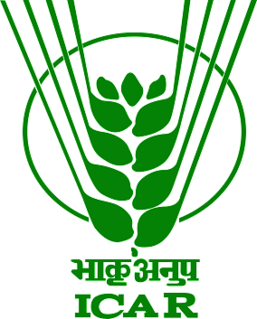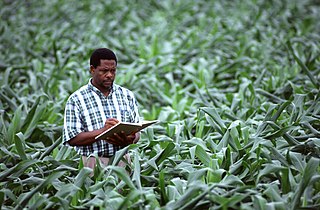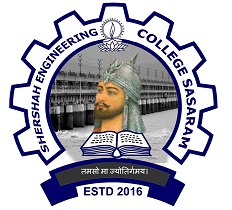
National Institute of Design or (NIDs) are autonomous public design schools located across India. NIDs are in Ahmedabad (Gujarat), Bangalore (Karnataka), Kurukshetra (Haryana), Vijayawada and Jorhat (Assam) and Bhopal. The institutes functions as an autonomous body under the Department for Promotion of Industry and Internal Trade (DPIIT), Ministry of Commerce and Industry, Government of India. NIDs are recognised by the Department of Scientific and Industrial Research under Ministry of Science and Technology, the government of India, as a scientific and industrial design research organisation. They are accorded as Institutes of National Importance by Act of Parliament, under the National Institute of Design Act, 2014.

The Indian Council of Agricultural Research (ICAR) is an autonomous body responsible for co-ordinating agricultural education and research in India. It reports to the Department of Agricultural Research and Education, Ministry of Agriculture. The Union Minister of Agriculture serves as its president. It is the largest network of agricultural research and education institutes in the world.

An agriculturist, agriculturalist, agrologist or agronomist, is a professional in the science, practice, and management of agriculture and agribusiness. It is a regulated profession in Canada, the Philippines, and the United States. Other names used to designate the profession include agricultural scientist, agricultural manager, agricultural planner, or agriculture researcher.

The Central Arid Zone Research Institute (CAZRI) is one of the biggest research institutes of the Indian Council of Agricultural Research (ICAR), an autonomous organization working under the aegis of the Department of Agriculture Research and Education (DARE) of the Ministry of Agriculture and Farmers Welfare of Government of India. CAZRI has the distinction of being one of the first institutes in the world exclusively devoted to arid zone research and development. The institute made a humble beginning in 1952 when Government of India initiated Desert Afforestation Research Station at Jodhpur to carry out research on sand dune stabilization and for establishment of shelter belt plantations to arrest wind erosion. It was reorganized as Desert Afforestation and Soil Conservation Station in 1957 and finally in its present form Central Arid Zone Research Institute in 1959 on recommendation of the UNESCO expert, Prof. C.S. Christian of the Commonwealth Scientific and Industrial Research Organisation (CSIRO), Australia. In 1966, the institute was brought under the administrative control of Indian Council of Agricultural Research (ICAR), New Delhi.

The West Bengal University of Animal and Fishery Sciences (WBUAFS) is a public state veterinary university in West Bengal, India. It was established on 2 January 1995 by an Act of the West Bengal legislature. It imparts education and training in veterinary and animal sciences, dairy sciences, and fishery sciences.

The Kerala University of Fisheries and Ocean Studies (KUFOS) is a university established by government of Kerala devoted to studies in fisheries and ocean sciences. The bill seeking to establish the university was passed by the Kerala Legislative Assembly on 30 December 2010. KUFOS has its headquarters in the premises of the College of Fisheries, Panangad, near Madavana junction along the Kochi Bypass. The College of Fisheries, established in 1979, was a constituent college of the Kerala Agricultural University. KUFOS is the first university in India exclusively dedicated to studies in fisheries and allied disciplines. The university was inaugurated and dedicated to the nation in a function held at the campus of the College of Fisheries, Panangad, on 20 February 2011.

The National Academy of Agricultural Research Management is a national-level Natural Resource Service training institute for ARS cadre located in Hyderabad, Telangana, India.

The Uttar Pradesh Public Service Commission (UPPSC) is the state agency authorized to conduct the Civil Services Examination for entry-level appointments to the various Group A and Group B Civil Services of Uttar Pradesh. The agency's charter is granted by the Constitution of India. Articles 315 to 323 of Part XIV of the constitution, titled Services Under the Union and the States, provide for a Public Service Commission for the Union and for each state.
Darbhanga College of Engineering is a government-owned engineering (B.Tech) college in Bihar, India. It was inaugurated by the Chief Minister of Bihar, Nitish Kumar, in 2008. It is affiliated with the Aryabhatta Knowledge University (AKU), Patna and approved by the AICTE. The college is administered by Department of Science and Technology, Bihar.
Guru Kashi University (GKU) has been established by the Act of the Legislature of the state of Punjab, under the "Guru Kashi University Act 2011", to provide education at all levels in all disciplines of higher education GKU is a residential university with separate hostels for boys and girls housing more than 7000 students. The University provides education through variety of disciplines at all levels of education -doctorate, post graduate, graduate and diploma programmes.
The Bachelor of Fisheries Science (B.F.Sc) is a bachelor's degree for studies in fisheries science in India. "Fisheries science" is the academic discipline of managing and understanding fisheries. It is a multidisciplinary science, which draws on the disciplines of aquaculture including breeding, genetics, biotechnology, nutrition, farming, diagnosis of diseases in fishes, other aquatic resources, medical treatment of aquatic animals; fish processing including curing, canning, freezing, value addition, byproducts and waste utilization, quality assurance and certification, fisheries microbiology, fisheries biochemistry; fisheries resource management including biology, anatomy, taxonomy, physiology, population dynamics; fisheries environment including oceanography, limnology, ecology, biodiversity, aquatic pollution; fishing technology including gear and craft engineering, navigation and seamanship, marine engines; fisheries economics and management and fisheries extension. Fisheries science is generally a 4-year course typically taught in a university setting, and can be the focus of an undergraduate, postgraduate or Ph.D. program. Bachelor level fisheries courses (B.F.Sc) were started by the state agricultural universities to make available the much needed technically competent personnel for teaching, research and development and transfer of technology in the field of fisheries science.
The Master of Fisheries Science (M.F.Sc) is a master's degree for studies in fisheries science in India. Fisheries science is the academic discipline of managing and understanding fisheries. It is typically taught in a university setting, and can be the focus of an undergraduate, postgraduate or Ph.D. program. Master level fisheries courses were started by the state agricultural universities to make available the much needed technically competent personnel for teaching, research and development and transfer of technology in the field of fisheries science.
Foundation Course for Agricultural Research Services is an introductory course designed for the fresh recruits to the various agricultural services in India. The Foundation Course, is designed for the newly recruited entry level scientists to the Agricultural Research Service of the ICAR. The course aims at providing exposure to the trainees on the concepts and principles of project management with special emphasis on project formulation and implementation. It also includes capsules in related areas on human resources development, and information and communication management. Around 6000 scientists have been trained by NAARM, Hyderabad adding great assets to National Service.
Dr Ramachandra Kuppayya Hegde was an Indian academic and the second Vice Chancellor of University of Agricultural Sciences, Dharwad.
Alternative pathways in education are alternative means of obtaining educational qualifications, other than the traditional means of gaining access to or completing the required study to obtain the educational qualifications.

Shershah Engineering College Sasaram (SCE) is a government engineering college managed by the Department of Science and Technology, Bihar. It is approved and recognized by AICTE and is affiliated to Aryabhatta Knowledge University in Patna.
National Testing Agency (NTA) is an Indian government agency that has been approved by the Union Council of Ministers and established in November 2017 to conduct entrance examinations for higher educational institutions. The government appointed Vineet Joshi as the first Director-General of the agency. NTA is responsible for conducting the Joint Entrance Examination – Main, National Eligibility cum Entrance Test -Undergraduate, National Eligibility Test (NET), Common Management Admission Test (CMAT) and Graduate Pharmacy Aptitude Test (GPAT).
Trilochan Mohapatra is an Indian biotechnologist, geneticist, a government secretary of the Department of Agricultural Research and Education (DARE) and the director general of the Indian Council of Agricultural Research. Known for his studies in the fields of molecular genetics and genomics, Mohapatra is an elected fellow of the National Academy of Sciences, India, the National Academy of Agricultural Sciences, the Indian National Science Academy and the Indian Society of Genetics and Plant Breeding. The Department of Biotechnology of the Government of India awarded him the National Bioscience Award for Career Development, one of the highest Indian science awards, for his contributions to biosciences in 2003.
Jammu and Kashmir Administrative Service is the administrative civil service of the Indian union territory of Jammu and Kashmir. The officers for this post are recruited by the Jammu and Kashmir Public Service Commission through an exam which is known as JKAS examination. The statewide combined competitive examination is conducted for recruitment of various state civil service cadres.









